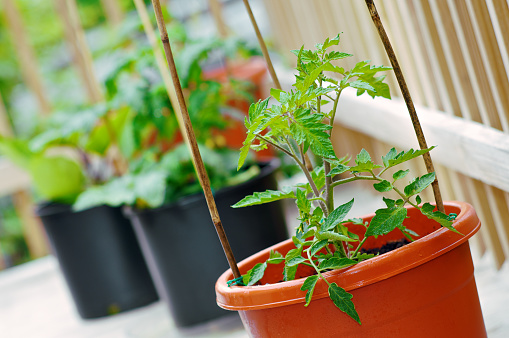So, you have read all the articles about small space gardening and the benefits of growing your own produce. You stare wistfully at garden magazines, look out at your tiny apartment patio and dream of the day when you’ll have a backyard to transform into a garden paradise.
But, wait. The dream may not be as far off as you think. You can take advantage of even the smallest of outdoor spaces and start harvesting vegetables right this season. So what’s the answer? Raised bed gardening. The climbing popularity of raised beds has allowed millions of people in the heart of the city to enjoy fresh, delicious vegetables. Read on to find out how to get started today!
Urban farming is a revolutionary movement and is the perfect way to capitalize on your outdoor patio, balcony, or other confined area. Raised beds are commonly installed over dirt, grass, or existing garden areas to allow ease of soil manipulation, water control, and to keep weeds out. However, they are also incredibly useful in transforming your concrete slab into a healthy garden. Keep in mind that it’s not as simple as setting up a few boards and going to town. Follow these guidelines when building your raised vegetable patio garden.
Drainage
Obviously, drainage is a clear concern any time you are dealing with plants, but it is an even more essential factor when you are attempting to grow on a nonporous surface like concrete. Perform a test by pouring a pitcher of water over the area where you intend to place your bed and mark which direction the water flows. If the water stays in a pool in that specific area, consider another spot on your patio.
When you are finally ready to install your raised bed, set it down and then use a level to ensure that all sides are even. Place blocks or wedges under the sides to make it level, if necessary.
Stains
Gardening is never the cleanest process, and staining your concrete is often a huge drawback for those considering patio gardening. However, with a few simple precautions, you can be sure that your concrete will remain clean and unstained. The main stains related to patio gardening occur from runoff underneath the bed. If you have installed your raised bed properly and made sure to level it, there should be little to no run-off from normal watering. If there is, cut back on the amount that you water, as you could be giving your plants a little too much moisture.
To avoid staining, it is important that you avoid overwatering, cover your beds in winter, and make sure that there is enough organic matter and nutrients in the soil to increase absorption. Also, it is a good idea to avoid sprinkler use and always check your patio following heavy rains. Spray any affected area with the hose to help dilute the soil runoff and prevent permanent staining.
Liners
Be sure to line the bottom of your raised bed with a drainage layer of coarse gravel or stones. According to The Royal Horticultural Society, this layer should be about three inches thick and be covered with a geotextile membrane to ensure adequate drainage.
Soil depth
Many people approaching patio gardening for the first time are unsure that the vegetable roots will be able to establish fully in a restricted environment. However, most vegetable plants don’t need a soil depth of any more than 18”. As long as your raised bed has at least that much soil, your vegetables will grow tall and strong.
Compost
Adding organic material like compost to your raised beds will be even more essential than in a typical gardening environment as many natural nutrients and creatures will be unable to access the soil. For instance, earthworms are an essential part of any garden but will not exist in your patio bed unless you introduce added material.
Construction
You can choose virtually any building material to make your raised bed, though common choices include wood, stone, bricks, or cinderblocks. Your bed can be whatever size you desire as long as you keep in mind that it needs to allow for 18” of soil.
Have you ever built a raised vegetable garden for your patio? Let us know in the comments below!
-Taylor Ramsey



